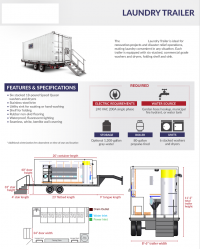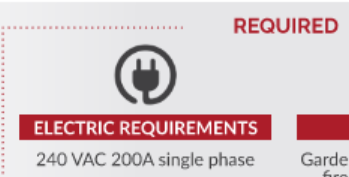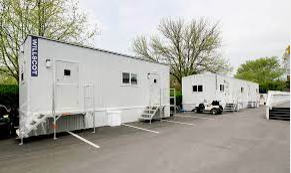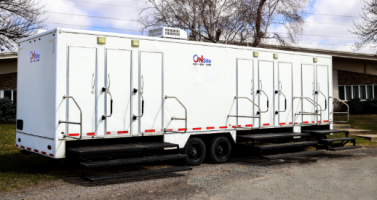Yikes
SAWHORSE
I have a homeless services (Homekey) hotel conversion project in California where they are trying to move residents in now, before the permanent resident laundry room if finished 3 months from now.
They are intending to rent an all-in-one laundry trailer. See example below. It would be placed in the parking lot, using several parking stalls.
It has a vehicle license plate and is roadworthy, kind of like those restroom trailers they use on movie sets or country weddings. The laundry trailer has its own propane supply and grey water tank, just like an RV - -all it needs is a power hookup and a hose connection.

They are intending to rent an all-in-one laundry trailer. See example below. It would be placed in the parking lot, using several parking stalls.
It has a vehicle license plate and is roadworthy, kind of like those restroom trailers they use on movie sets or country weddings. The laundry trailer has its own propane supply and grey water tank, just like an RV - -all it needs is a power hookup and a hose connection.
- The city building official is calling it "temporary construction" per CBC 3103, requiring either a full plan check; or else an HCD modular tag, foundation (auger) plans, and access ramp plans.
- I contend that because it is licensed by the DMV as a "trailer coach" (like a travel trailer) it is not subject to the building code at all, and can be parked like any other RV - - no foundation needed, no plan check by the building department, and thus no property line setbacks (because vehicles are allowed to park next to the property line).




